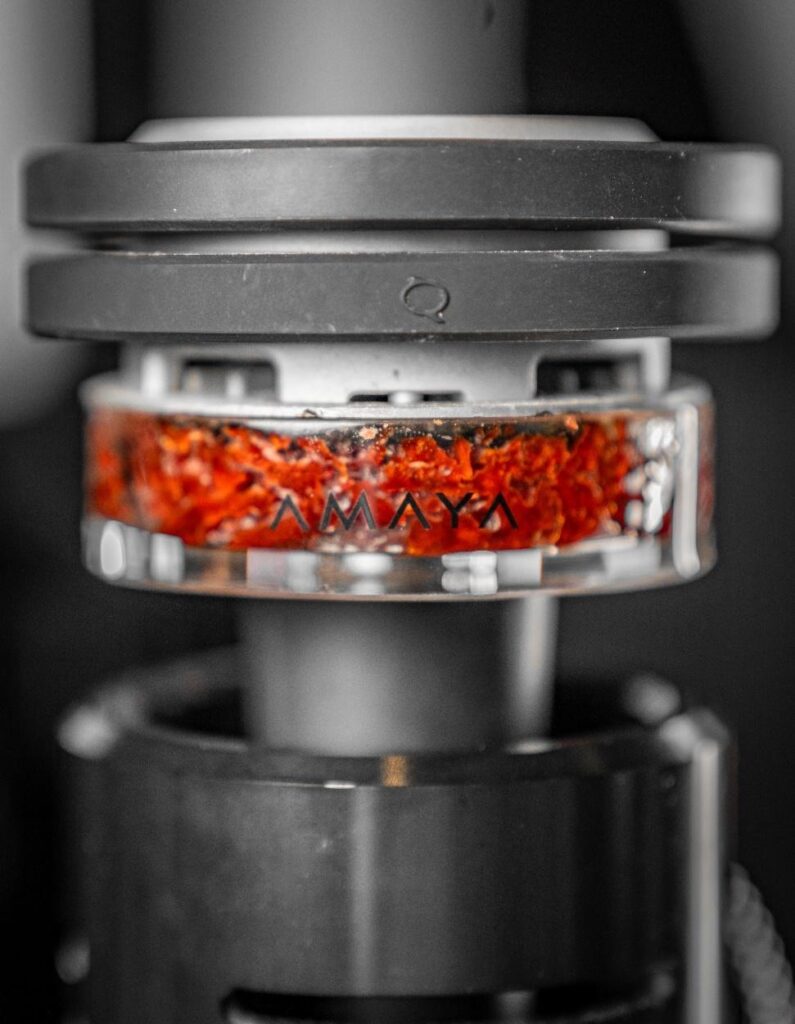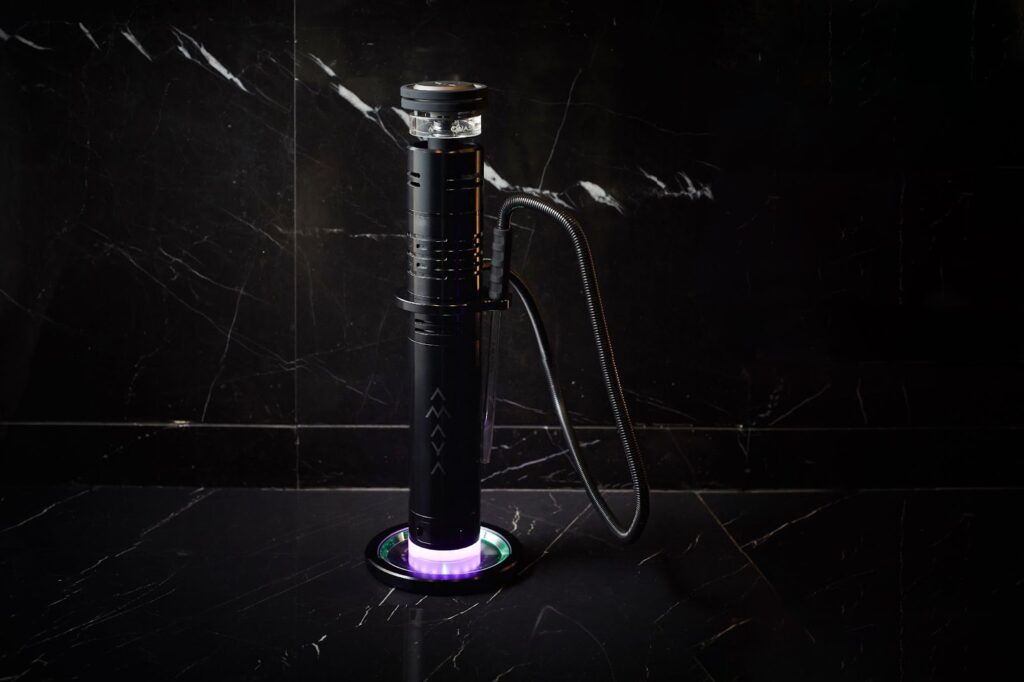Have you ever heard someone say, “Shisha is better than cigarettes” while puffing away in a lounge?
If so, you’re not alone. Many people believe that smoking shisha is less harmful or even somehow healthier than cigarettes. The idea that shisha is good for health is a topic that often comes up in social settings, especially in trendy restaurants or lounges where it’s served alongside food, drinks, and good conversation. But is this claim true?

In this article, we’ll unpack the facts behind shisha’s health effects, clear up the common myths, and give you a well-rounded view of what to expect if you’re someone who enjoys shisha casually at restaurants or lounges.
The Myth: Is Shisha Good for Health?
Let’s start with the question everyone wants answered: Is shisha good for health? The short answer is no. Despite what some people claim, shisha is not a healthy activity. The smoke may smell sweet, and the bubbling water might seem like it filters out the bad stuff, but scientifically, that’s not the case.
Many restaurant-goers and casual smokers assume that because shisha smoke passes through water, it becomes cleaner or safer to inhale. However, this belief is misleading. While water may cool the smoke, it does not filter out harmful toxins or carcinogens.
Still, it’s easy to see why this myth has gained popularity. Shisha doesn’t carry the harsh taste of cigarettes. It’s flavored, often enjoyed slowly in a social setting, and doesn’t leave a lingering smell on clothes the way cigarettes do. All of these factors contribute to the mistaken idea that shisha is good for health or at least “not bad.”
Understanding Shisha’s Health Effects
To get a better picture, let’s explore the shisha’s health effects supported by science. A single shisha session typically lasts 45 minutes to an hour. During that time, users may inhale the smoke equivalent of 100 or more cigarettes. This is because shisha smokers tend to take longer, deeper puffs over an extended period.
The charcoal used to heat the tobacco also produces carbon monoxide, heavy metals, and other dangerous chemicals. These by-products contribute to the harmful effects of shisha smoke, including damage to the lungs, heart, and blood vessels.
So while the experience may feel smoother or more “refined” than smoking a cigarette, the long-term risks are just as real. Many studies have concluded that smoking shisha has health effects that include increased risk of heart disease, respiratory issues, and, in some cases, cancer.
Why Do So Many People Believe Shisha Is Safer?
One reason people believe shisha is good for health is the way it’s marketed and presented. Shisha lounges often appear more upscale than cigarette-smoking areas. The atmosphere is calm, the equipment is beautifully designed, and the shisha itself comes in fun flavors like watermelon, blueberry, or mint.

Another reason is cultural tradition. In many parts of the world, especially the Middle East and parts of Asia, shisha is deeply embedded in social gatherings. Because it’s seen as a family or community activity, it feels less harmful than other forms of smoking. While cultural significance should be respected, it doesn’t change the scientific evidence.
People also often assume that because they smoke shisha only occasionally, maybe once a week during a restaurant outing or a friend’s gathering, it’s not enough to do damage. However, studies show that even occasional use can expose individuals to high levels of toxins. Therefore, occasional use is not without risk.
What Restaurant-Goers Should Really Know
If you’re someone who enjoys dining out and having a shisha session in Dubai as part of your evening, it’s important to understand what you’re getting into. This doesn’t mean you need to give it up entirely, but you should be informed.
First, know that shisha’s health effects are not just about nicotine. Even herbal or nicotine-free shisha can produce harmful chemicals when burned. So switching to “herbal” shisha doesn’t remove the risk. It may lower nicotine exposure, but it won’t eliminate the dangers of inhaling carbon monoxide or other harmful substances.
Second, understand your environment. Restaurants that serve shisha in well-ventilated outdoor areas are a better option than small, poorly ventilated spaces. Smoke concentration in enclosed spaces makes it easier to inhale harmful chemicals, even if you’re not the one smoking.
Lastly, moderation and awareness are key. If you’re enjoying shisha as part of a rare night out, it’s important to keep that occasional use in perspective. But thinking that it’s a healthy choice or somehow beneficial is simply incorrect.
Can Shisha Ever Be “Healthier”?
Some lounges and restaurants try to offer a “healthier” shisha experience. They might use organic or nicotine-free flavors, or even alternative heating methods instead of charcoal. These efforts may reduce certain harmful exposures, but they don’t make the session harmless. In addition, make sure you look for premium shisha lounges.
The idea that shisha is good for health can stem from this marketing language. But it’s important to understand that “less harmful” does not mean “healthy.” Even the best equipment and cleanest ingredients cannot turn shisha into a health benefit.
If you’re genuinely looking for a healthy activity during your social outings, there are better choices, such as non-smoking lounges, herbal teas, social games, or outdoor dining spots with fresh air and movement. These alternatives can be just as enjoyable without the health risks.
Why the Conversation Matters
You may wonder why it’s even important to talk about whether shisha is good for health if most people already know smoking is risky. The answer lies in the confusion and casual attitude many have toward shisha compared to cigarettes.
In social settings, people who would never smoke a cigarette may try shisha without a second thought. The stigma is lower, the presentation is attractive, and the experience is communal. That makes it easy to fall into a routine where you’re unknowingly putting yourself at risk.
Restaurant-goers, especially in cities where shisha is trendy and widely available, should have access to accurate information. Knowing the real shisha’s health effects helps you make smarter decisions without giving in to the illusion that flavored smoke is harmless.
Making Informed Choices
If you choose to enjoy shisha, it should be a fully informed decision, not based on the false belief that shisha is good for health. Understanding the actual risks allows you to approach them with the right mindset. Enjoy the atmosphere, the company, and the flavor, but do so knowing the facts.
Being informed doesn’t mean you have to live in fear; it just helps you maintain control over your health. The next time someone tells you shisha is “fine” or “healthy,” you’ll know the truth. You can enjoy it responsibly or even explore healthier alternatives, all while staying aware of what your body is exposed to.
Conclusion
While shisha is enjoyable in social settings, the idea that shisha is good for health is a myth. Even occasional use carries health risks. That’s why choosing a trusted, high-quality venue matters. Amaya, located in The Dubai Mall, offers a refined shisha experience with premium flavors, proper ventilation, and natural charcoal, ensuring enjoyment without compromising awareness.
It’s perfect for catch-ups, date nights, or relaxing evenings with a view of the Burj Khalifa. For bookings or inquiries, contact info@amayaintl.com or call +971 4 587 1000. Enjoy responsibly, and let Amaya elevate your night out the right way.
FAQs
1. Is shisha healthier than cigarettes because the smoke goes through water first?
While it’s true that shisha smoke passes through water before being inhaled, this does not make it safer. The water cools the smoke but does not filter out harmful toxins like carbon monoxide, heavy metals, or cancer-causing chemicals. In fact, many of the health risks remain the same as cigarette smoking, and in some cases, are even greater due to the length of a typical shisha session.
2. Can herbal or nicotine-free shisha reduce health risks significantly?
Herbal shisha eliminates nicotine, but that doesn’t make it risk-free. The process of burning herbal mixtures still produces harmful substances like tar, carbon monoxide, and other chemicals. So while the nicotine-related addiction may be reduced, the health risks tied to smoke inhalation still exist, making it a less-than-healthy option overall.
3. How often can I smoke shisha without affecting my health?
There’s no completely safe frequency for smoking shisha. Even occasional use exposes your lungs and body to harmful substances. While infrequent use may reduce your risk compared to daily smoking, it doesn’t eliminate health risks. It’s important to view shisha as a social indulgence rather than a harmless habit.
4. Why does shisha feel smoother and less irritating than cigarettes?
Shisha smoke feels smoother because it is cooled by water and is often mixed with sweet flavors. This can mask the presence of harmful chemicals, making it easier to inhale more deeply and frequently. That smoothness can mislead people into thinking it’s safer, when in reality, it can lead to greater smoke intake.
5. Do secondhand shisha smoke and indoor lounges pose health risks to non-smokers?
Yes, secondhand shisha smoke can be just as harmful as secondhand cigarette smoke. In enclosed restaurant or lounge settings, even non-smokers may inhale dangerous chemicals released from both the tobacco and the charcoal. Poor ventilation can further increase this exposure, putting everyone at risk.






